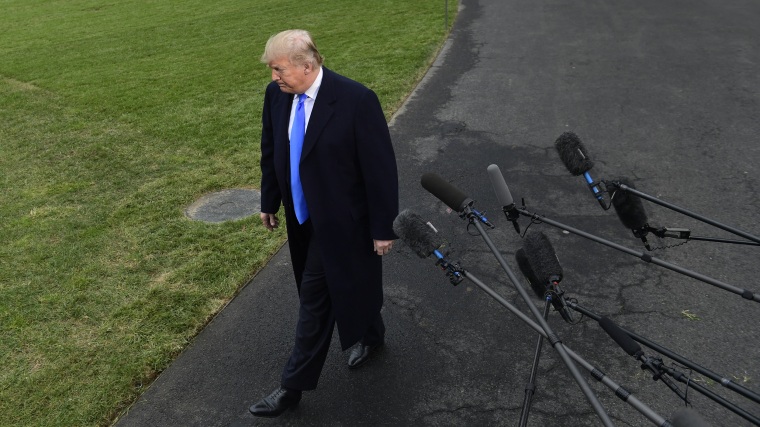Bombshell reports have shown that, upon “direction from the White House,” administration officials decided to scrap the long-planned project to relocate the FBI from the badly-outdated J. Edgar Hoover building in downtown Washington, D.C. to a sprawling new suburban campus. Despite pushback from the Office of Management and Budget, the officials at the General Service Administration promised “per the president’s instructions” to “hold [their] ground” and stymie the relocation.
These revelations of President Trump’s personal involvement in the relocation project are the strongest evidence yet that the president of the United States is tampering with American security to avoid disadvantaging his businesses.
This is precisely why we — and the watchdog organization we lead, Citizens for Responsibility and Ethics in Washington — have helped bring multiple lawsuits challenging the president’s flagrant violation of the Emoluments Clauses of the constitution. We cannot have the most powerful person in the world making national and domestic security decisions based on how his businesses might be impacted.
Moving the FBI from the J. Edgar Hoover building, an old, deteriorating structure on Pennsylvania Avenue that is hard to secure and can’t accommodate the agency’s large workforce, seems like an obvious decision. That is why the plan to relocate to a larger, modern suburban campus in either suburban Virginia or Maryland has been in the works since 2005, with the GSA proposing to move forward with the plan in 2012. The total cost of the relocating to the 2.1 million square foot state-of-the-art campus was budgeted as less than the cost of staying in the deteriorating Hoover Building and making necessary repairs. All parties involved agree that it is a necessary expense as the nation’s law enforcement needs continue to grow.
So what’s the problem?
From Mr. Trump’s perspective, it is evidently that the current headquarters of the FBI sits across Pennsylvania Avenue from the Trump International Hotel. Were the bureau to relocate, its old space would be sold off to developers to cover some of the cost of the relocation. And that sale and redevelopment could mean competition for President Trump’s hotel or the restaurants inside of it, and correspondingly less money flowing into his presidential pockets.
This is why the Emoluments Clause matters. It may well be that the president is involving himself in this process because he genuinely believes that the FBI, the GSA and Congress are making a mistake in relocating the bureau. But we can’t possibly know that for sure because we also know that it is in his personal financial interest to keep the FBI where it is currently located.
We simply don't know whether the president is acting in the public’s interest — or in his own.
That is terribly wrong: A president should always be addressing the public interest, not his own, and the American people should know it. Not knowing raises profound legal issues under the constitution, because the Domestic Emoluments Clause was written to prevent a president from manipulating government resources to benefit himself.
It is for this reason that we are among the co-counsel in an emoluments case brought by Maryland and the District of Columbia. That case asserts that the president should have sold his interest in his hotel (in a building that he leases from the government) prior to taking the oath of office. Trump’s hotel has raked in money from foreign governments, state governments, and is the central hub for any lobbyist looking to buy interest with the White House. And now it’s at the center of this new controversy about whether the president of the United States intervened in a government real estate deal just to funnel even more money into his own business.
What's worse, this is no mere government real estate dispute. Members of both parties — including Sens. Van Hollen, D-Md., and Barrasso, R-Wyo., who raised questions about the abrupt change of plans — agree that the current headquarters are inadequate for the FBI. Because the FBI bears such enormous responsibility for keeping us safe from domestic and international threats, anything that hinders the FBI has a quantifiable impact on our national security and safety.
In fact, in a 2011 report the GAO underscored the Hoover Building’s negative impact on the FBI, noting that "[s]ince September 11, 2001, the Federal Bureau of Investigation’s (FBI) mission and workforce have expanded, and the FBI has outgrown its aging headquarters, the J. Edgar Hoover Building (Hoover Building).” FBI officials themselves have been quick to point out that the Hoover building “does not meet the FBI’s long-term security requirements.”
The president has once again put himself in a position where we cannot tell whether he is making important national security decisions for the good of the country, or for the good of his business. He has even put his subordinates, like GSA Administrator Emily Murphy, in a position to give “incomplete...and mislead[ing]” testimony to Congress about his involvement.
The only way for President Trump to convince the American people that he is acting on their behalf would be to completely and totally divest all control and interest in his businesses, as required by the constitution. Until then, every decision that he makes will always make us wonder whether he is doing this because he’s looking out for us, or because he’s looking out for himself.



